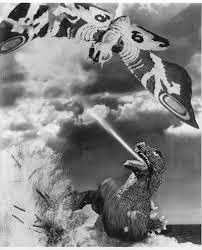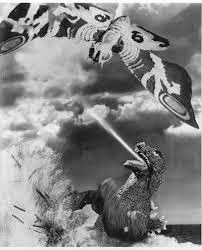UPDATE: Well, that didn’t take long. Random House and Penguin have announced their merger. So what will that mean for authors? Agent Richard Curtis has one opinion. So does The Passive Voice.
***
David Letterman once did a Top Ten list of headlines that would cause a panic. Such as:
“Sometimes When We Touch” Made National Anthem.
Constitution Thrown Out in Favor of Old “Marmaduke” Cartoon.
Willie Nelson Discovered Washing Hair in New York City Water Supply.
That last one is very troubling. And in the publishing industry, it seems there are headlines each week that, if they don’t cause a panic, at least give traditional publishing executives the jimmy-legs at night. Headlines like the following:
Indeed, it was inevitable that the Big 6 would become the Big 5, and maybe even the Big 4, and that soon. I predicted this would happen sometimes in 2013. Well, the talks are happening right now.
“It’s a recognition that they don’t individually have the scale to be able to stand up to companies like Amazon or Apple,” Philip Downer, former chief executive of Borders UK who now runs the retail consultancy Front of Store, told the BBC.
Thus, it seemed apt to file another field report on developments in the e-book revolution. It was a year ago that I filed my first one. Happy anniversary:
1. The Business Cycle as a Funneling Sump Pump
Traditional publishers are in the midst of a horrible business cycle (not necessarily in terms of income, but in terms of sustainability and growth of income). We all know that, and the merger talks are a sign.
Layoffs, hires and re-structuring are all focused on digital now. For example, Hachette announced changes in its sales force with an appropriate press release: “We are changing our current structure to enable HBG to meet the needs and challenges of our ever-shifting world, where digital has made a deep and lasting impression on the way HBG sells and the customers we sell to, the platforms we advertise on, and the manner and type of content we publish.”
On the other side of the publishing fence (an electric fence, BTW):
• In 2011, 39% of books were sold via some form of e-commerce. Only 26% in bookstore chains. (Source: Bowker)
• The number of self-published books produced annually in the U.S. has nearly tripled, growing 287% since 2006, with 235,625 print and e titles released in 2011. (Source: Bowker)
• And a company that recorded $13.8 billion (with a “b”) in sales this past quarter did not make a profit, but rather a $247 million loss. That company is Amazon. But it is also Amazon’s strategy. As Jeff Bezos puts it:
“Our approach is to work hard to charge less. Sell devices near breakeven and you can pack a lot of sophisticated hardware into a very low price point. And our approach is working – the $199 Kindle Fire HD is the #1 bestselling product across Amazon worldwide . . .The next two bestselling products worldwide are our Kindle Paperwhite and our $69 Kindle.”
Is this just sound and fury? Or is it, as Forbes magazine puts it, a crafty strategy worthy of Steve Jobs? For it just may be that what Amazon is after now is Apple. As Bezos says, in a shot across the bow from the above release: “And we haven’t even started shipping our best tablet – the $299 Kindle Fire HD 8.9.”
2. The New Vanity?
“Vanity of vanities; all is vanity,” wrote Solomon the Wise. Was he thinking of self-publishing Ecclesiastes? Or was he hoping to sell it to a big papyrus company? One writer has gone so far as to call traditionalpublishing the “new vanity publishing.”
According to this HuffPo post, many writers “are willing to forego the benefits of self-publishing for the unshakable belief in the “prestige” of signing on with a ‘real publisher.’” He concludes:
Think about how much you are willing to sacrifice for a “real publisher.” Is the “prestige” of a traditional publisher’s imprint mostly illusory in the context of the new world of publishing? Ask what traditional publishing will do for you in the long run if you don’t get effective distribution and publicity. Which platform is more likely to bring you sizable sales? Which will help you build a large following for marketing future publications? These are critical questions that deserve serious attention, especially if you are planning a career in writing.
Is the imprimatur of traditional publishing the new “vanity” plate? Perhaps that’s not the right designation. Vanity publishing was about paying your way in with a crummy book. Traditional publishing requires a great book (and/or platform, and/or celebrity co-writer who does not really do any of the real writing but is on TV.)
But more and more authors are asking what specific benefits are there for a new writer within the walls of traditional publishing. Especially in light of low advances (or, in the case of digital only, no advance at all), the semi-fixed royalties in the publishers’ favor, the shrinking of shelf space, and the lack of a significant marketing push unless you have a “name.”
If deals are to be made favorable to both sides, they will have to be creative, forward thinking, shared-risk and flexible. This is my message to the Big 6 or 5 or 4, or whoever is left standing when we file our next field report.
As Jane Friedman (not the former CEO of HarperCollins Jane Friedman, but the publishing world observer Jane Friedman) recently wrote:
In a nutshell, I suggest that—given the changes happening in the industry—traditional publishers will need to be more author-focused in their operations by offering tools, community, and education to help authors be more successful, to everyone’s greater benefit. If publishers fail to do so, then authors, who have an increasing number of publishing options available to them, will depart for greener pastures.
3. Remember Sony Reader?
With all the talk about Kindle, Nook and Kobo, it’s easy to forget the first kid on the block, the Sony Reader. Yes, it’s still out there and people still have them. But if Kindle is Godzilla, and Nook is The Hulk, and Kobo is Mothra, what would Sony Readers be? Jean-Claude Van Damme?
Today Sony Reader Store has announced the launch of its inaugural virtual Book Club, the ‘Sony Readers Book Club.’ Each month, Sony Reader Store will select a book of the month. During each month, Reader Store will host a virtual Book Club meeting, an online chat with the author, on the Sony Reader Store Facebook and Twitter pages, giving participants the opportunity to interact with the author and each other and ask questions related to the book. The Sony Readers Book Club will also offer special discounts and book club extras for download, available to U.S. customers at Reader Store.
Upcoming chats will feature Barbara Kingsolver and Michael Connelly. Not a bad start. I wish them well.
4. Happiness as the New Currency
In Field Report #1 I wrote this: Authors who are succeeding at being completely independent are those who are able to bring entrepreneurial analytics to the task. If you’re going to publish successfully as an indie, you have to think like a business.
I have a friend who is a New York Timesbestselling author. He has found advances decreasing and the publishing lag time of 18 months – 2 years intolerable. So he has self-published his new book, in both e form and POD (Print On Demand). He has set up his own book signings with independent bookstores. And he’s happy about it.
I have another friend who is a successful screenwriter. But he now finds the whole vibe of the business “soul sucking” and longs to get out and just write fiction. He has self-published a thriller, and I’m helping think things through.
You see, sometimes being happy as a writer is worth trading in other things that just don’t matter so much anymore.
Happiness just may be the new currency in the writing game. Make your choices accordingly.


